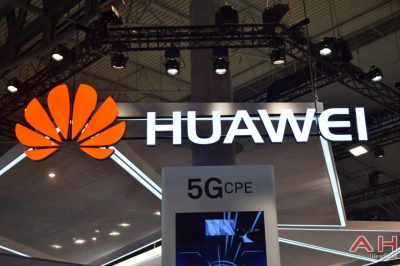To Huawei or Not to Huawei; Boris Johnson Says Yes to Chinese 5G Provider for the UK

The UK security council met on Tuesday to discuss whether or not to exclude Huawei from providing Britain’s 5G networks, which are to be rolled out gradually by 2022. The outcome? A compromise: Huawei is to have a limited role, allowed to account for 35% of the equipment in a network’s periphery, which includes radio masts. In addition it will be banned from sensitive areas such as military bases and nuclear sites.
It was Prime Minister Boris Johnson’s most significant decision since he won the December election, and as usual, he has dividing public opinion. However it is not only the public, but Britain’s security experts who have been split over the Huawei issue, with the UK’s Government Communications Headquarters (GCHQ) warning for years of the security risks of depending on Chinese technology.
Suspicion over Huawei technology is not so much based on factual evidence of how it can be used maliciously for spying etc, but more fuelled by US foreign policy. Since Trump came to power, China has always been more foe than friend, and Secretary of State Mike Pompeo has made his views on China clear, denouncing it as an ‘Orwellian’ state, ‘truly hostile’ to Western values. For the Trump administration China is seen only as a threat, with any cooperation deemed hugely risky and Donald Trump has declared that Huawei is not a company it will work with. Considerable pressure has been put on the UK government of late to follow suit in rejecting business with the Chinese firm, even to the extent of the US threatening to pull the plug on the post-Brexit trade deal with the UK if it failed to toe the line. Mike Pompeo gave a gentle reminder to Johnson’s government in a tweet on Sunday, quoting MP Tom Tugendhat who had said ‘only nations able to protect their data will be sovereign’.
The reality is however, that much of the fear surrounding Huawei is not based in fact, but steeped in paranoia. And even in the unlikely event the Chinese state were to engage in some cyber attack on the UK via Huawei technology (Huawei strongly denies the Chinese state could interfere in this way and we’d probably have to be in a state of war for this to happen), the UK has been preparing for such a scenario for years. Back in 2010, when reports emerged that Huawei infrastructure was ‘behaving unusually’, GCHQ set up its own centre – ‘The Cell’ – to analyse every single Huawei device destined for the UK market.
Indeed the Chinese company has been involved in British communications infrastructure since 2005, when the UK telecoms giant BT contracted it to supply routers and other transmission equipment. Three out of four of the UK’s major mobile phone providers (EE, Vodafone and Three) already use Huawei equipment in their networks. The real risk in fact, cyber security experts say, is not from deliberately malicious behaviour by the Chinese, but from sub-standard engineering, which leaves gaping holes in their products which can be open to manipulation. This is something, however, which British security analysts are aware of, as a report published in 2018 by GCHQ revealed.
In fact, with the immense scrutiny Huawei continues to face, the chance of it being able to pose any real national security threat diminishes. As John Suffolk, head of Huawei’s cyber security operations said last year “We are probably the most audited, inspected, reviewed, poked and prodded company in the world”. Ironically, with all eyes on Huawei, the security risk from other technology providers may not be given warranted attention.
It’s not surprising that Boris Johnson has given Huawei the green light. Firstly, he knew there would be “substantial” repercussions, as Beijing warned, to other trade and investment projects had the company been banned altogether. More importantly however, Johnson knows that for post-Brexit Britain, being a front runner technologically will be a priority, as will cooperation with states outwith the EU. The relationship with America will always be of importance, but Britain will have to tread carefully in future, strengthening ties with other global powers, including China and the rest of the BRICS nations. The decision by Johnson not to ban Huawei outright is a signal to the US, that while it is willing to listen to the partners on the other side of the Atlantic, post-Brexit Britain will have to forge its own, independent, pragmatic path.
*
Note to readers: please click the share buttons above or below. Forward this article to your email lists. Crosspost on your blog site, internet forums. etc.
This article was originally published on InfoBrics.
Johanna Ross is a journalist based in Edinburgh, Scotland.

